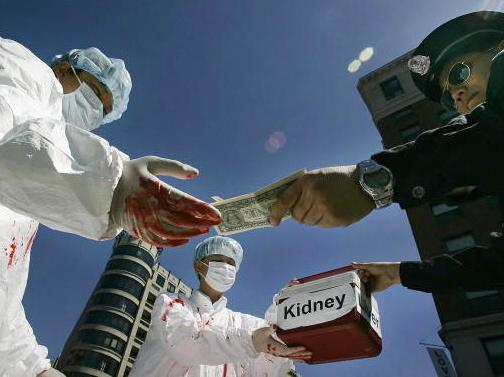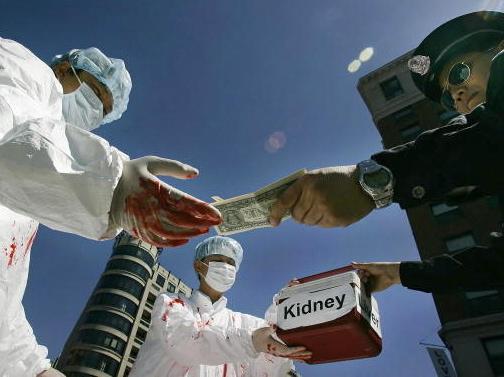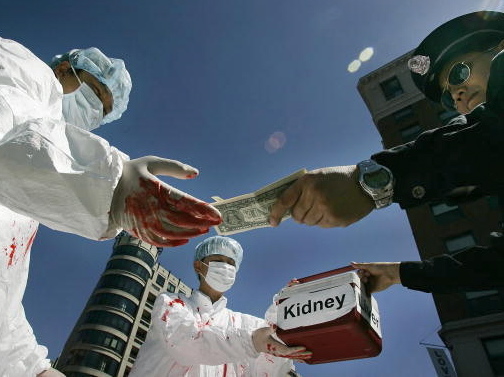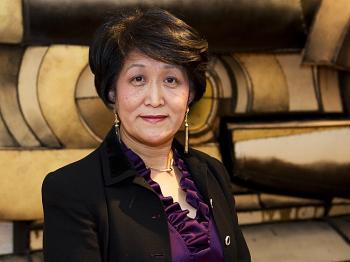Opinion
Taking Pride in Plundering Organs in China
A conversation with a doctor from mainland China reveals how the atrocity of forced, live organ harvesting could be possible.

Falun Gong demonstrators dramatize an illegal act of paying for human organs during a protest on April 19, 2006, in Washington, D.C. The transplantation of organs taken from prisoners of conscience has become a big business in China. Jim Watson/AFP/Getty Images
|Updated:



